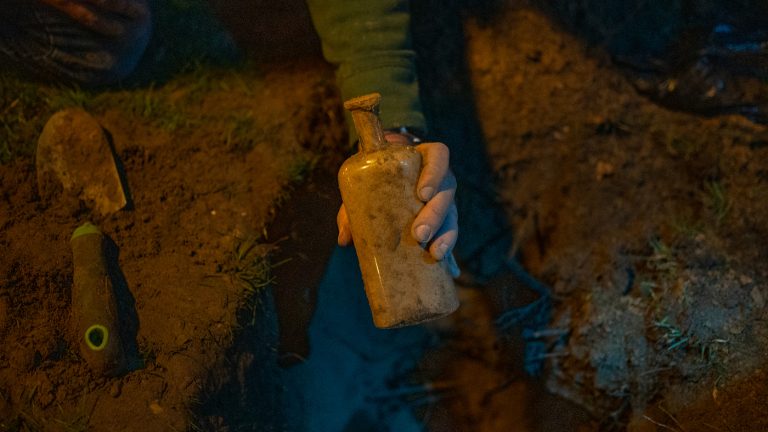In the fall of 1879, Professor William James Beal started what is now the longest continuously monitored experiment in the world. He wanted to know how long seeds can remain alive in the soil and able to germinate when exposed to favorable conditions. Knowing this answer is important for weed management in farm fields, rare plant conservation, management of invasive species, and other important topics in conservation, restoration, and agriculture. To answer the question, Beal buried 20 bottles containing sandy soil and seeds of 21 plant species common in mid-Michigan, at a secret location on MSU’s campus. Periodically, a bottle is unearthed under the cover of darkness and a germination trial run on the contents, to determine the number of viable seeds remaining for each species. The most recent bottle (year 141) was unearthed by a team of MSU plant biologists in March 2021 and the germination trial has now been completed. Join team members Brudvig and Telewski to hear about this experiment’s history and results of the year 141 trial.

142 Year-Old Beal Seed Experiment
Webcast Video
Guests
Lars Brudvig
Michigan State University
Department of Plant Biology
Lars Brudvig a Professor in the Department of Plant Biology and the Program in Ecology, Evolution, and Behavior at Michigan State University. His research focuses on the ecology of tallgrass prairies, oak savannas, and longleaf pine woodlands, with a particular emphasis on understanding how to restore these ecosystems, after they have been degraded by humans. Much of his work revolves around plants, though he also works on plant-animal interactions including pollination and pollinator responses to restoration. Brudvig teaches courses in biology, field natural history/botany, and restoration ecology at Michigan State University. Prior to joining the MSU faculty in 2010, Brudvig was a Postdoctoral Associate at Washington University in St. Louis. He completed a Ph.D. at Iowa State University in Ecology and Evolutionary Biology and a B.A. at Carleton College (MN) in Biology.
Frank Telewski
W.J. Beal Botanical Garden and Campus Arboretum
Director Emeritus
Frank Telewski is Director Emeritus of the W.J. Beal Botanical Garden and Campus Arboretum, and professor emeritus in the Department of Plant Biology. His research interests center on environmental plant physiology and plant development with a special interest in tree responses to mechanical loads such as wind, ice and snow. He also has conducted research on tree growth in response to environment using tree rings (dendrochronology). He has taught courses in Environmental Plant Physiology, Plant Structure and Function, and Economic Botany. Since 2000, Frank has served as the lead scientist on the W.J. Beal Long-term Seed Germination Study. Prior to arriving at MSU in 1993, he served as the Director of the Buffalo and Erie County Botanical Garden and Adjunct Associate Professor at Buffalo State University and SUNY Buffalo. Prior to Buffalo, Dr. Telewski was an Assistant Professor in the Laboratory of Tree Ring Research, University of Arizona. He earned his Ph.D. from Wake Forest University in Tree Physiology, an M.S. from Ohio University in Botany, and a B.A. from Montclair State College (NJ)in Biology and Chemistry.